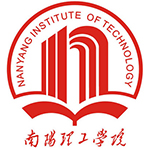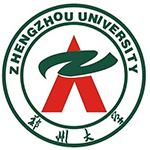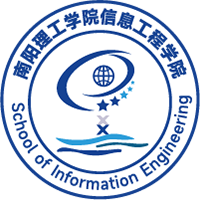Speakers

Witold Pedrycz
Professor, IEEE Life Fellow, University of Alberta, Canada.
Research field: Computational Intelligence; Fuzzy Modeling and Granular Computing; Knowledge Discovery and Data Science; Pattern Recognition; Data Science; Knowledge-Based Neural Networks; Control Engineering.
Witold Pedrycz (Life Fellow, IEEE) received the M.Sc., Ph.D., and D.Sc. degrees from the Silesian University of Technology, Gliwice, Poland, in 1977, 1980, and 1984, respectively. He is currently a Professor with the Department of Electrical and Computer Engineering, University of Alberta, Edmonton, Canada, the Systems Research Institute, Polish Academy of Sciences, Warsaw, Poland, the Department of Computer Engineering, Faculty of Engineering and Natural Sciences, Istinye University, Sariyer/Istanbul, Turkey, and also the Department of Electrical and Computer Engineering, Faculty of Engineering, King Abdulaziz University, Jeddah, Saudi Arabia. He has published numerous papers in these areas; the current H-index is 125 (Google Scholar). He is 82 on the list top-h scientists for computer science and electronics (https://www.guide2research.com/scientists/) (link is external). He is also the author of 21 research monographs and edited volumes covering various aspects of computational intelligence, data mining, and software engineering. His research interests include computational intelligence, fuzzy modeling and granular computing, knowledge discovery and data science, pattern recognition, data science, knowledge-based neural networks, and control engineering. In 2012, he was elected a Fellow of the Royal Society of Canada. In 2007, he received the Prestigious Norbert Wiener Award from the IEEE Systems, Man, and Cybernetics Society. He was a recipient of the IEEE Canada Computer Engineering Medal, the Cajastur Prize for Soft Computing from the European Centre for Soft Computing, the Killam Prize, the Fuzzy Pioneer Award from the IEEE Computational Intelligence Society, and the 2019 Meritorious Service Award from the IEEE Systems Man and Cybernetics Society. He is vigorously involved in editorial activities. He is also the Editor-in-Chief of Information Sciences, the Editor-in-Chief of WIREs Data Mining and Knowledge Discovery (Wiley), and the Co-Editor-in-Chief of International Journal of Granular Computing (Springer) and Journal of Data Information and Management (Springer). He is a member of a number of editorial boards of international journals.
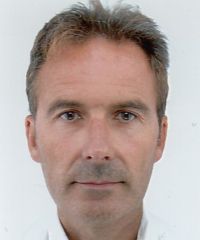
Pascal Lorenz
Professor, IEEE Senior Member, University of Haute-Alsace, France.
Research field: QoS; Wireless Networks; High-Speed Networks.
Pascal Lorenz (lorenz@ieee.org) received his M.Sc. (1990) and Ph.D. (1994) from the University of Nancy, France. Between 1990 and 1995 he was a research engineer at WorldFIP Europe and at Alcatel-Alsthom. He is a professor at the University of Haute-Alsace, France, since 1995. His research interests include QoS, wireless networks and high-speed networks. He is the author/co-author of 3 books, 3 patents and 200 international publications in refereed journals and conferences. He was Technical Editor of the IEEE Communications Magazine Editorial Board (2000-2006), IEEE Networks Magazine since 2015, IEEE Transactions on Vehicular Technology since 2017, Chair of IEEE ComSoc France (2014-2020), Financial chair of IEEE France (2017-2022), Chair of Vertical Issues in Communication Systems Technical Committee Cluster (2008-2009), Chair of the Communications Systems Integration and Modeling Technical Committee (2003-2009), Chair of the Communications Software Technical Committee (2008-2010) and Chair of the Technical Committee on Information Infrastructure and Networking (2016-2017), Chair of IEEE/ComSoc Satellite and Space Communications Technical (2022-2023), IEEE R8 Finance Committee (2022-2023), IEEE R8 Conference Coordination Committee (2023). He has served as Co-Program Chair of IEEE WCNC'2012 and ICC'2004, Executive Vice-Chair of ICC'2017, TPC Vice Chair of Globecom'2018, Panel sessions co-chair for Globecom'16, tutorial chair of VTC'2013 Spring and WCNC'2010, track chair of PIMRC'2012 and WCNC'2014, symposium Co-Chair at Globecom 2007-2011, Globecom'2019, ICC 2008-2010, ICC'2014 and '2016. He has served as Co-Guest Editor for special issues of IEEE Communications Magazine, Networks Magazine, Wireless Communications Magazine, Telecommunications Systems and LNCS. He is associate Editor for International Journal of Communication Systems (IJCS-Wiley), Journal on Security and Communication Networks (SCN-Wiley) and International Journal of Business Data Communications and Networking, Journal of Network and Computer Applications (JNCA-Elsevier). He is senior member of the IEEE, IARIA fellow and member of many international program committees. He has organized many conferences, chaired several technical sessions and gave tutorials at major international conferences. He was IEEE ComSoc Distinguished Lecturer Tour during 2013-2014.
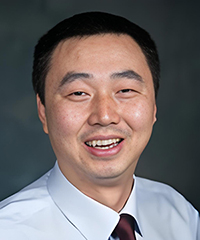
Debao Zhou
Professor, University of Minnesota Duluth, USA.
Research field: Conformable Artificial Skin Sensors; Smart Materials; Vision System; Modeling and Simulation of Surgical Processes; Robotics; System Dynamics; Control and Quantum Cascade Laser System.
Dr. Debao Zhou is a professor in the Department of Mechanical and Industrial Engineering (MIE) at the University of Minnesota Duluth (UMD). He joined UMD as a tenure-track assistant professor in 2009 and promoted to associate professor in 2014 and full professor in 2018. He earned his Ph.D. in Mechanical Engineering from Nanyang Technological University Singapore researching in bio-robotics. He proposed and developed the Master of Science in Mechanical Engineering (MSME) program in 2015 and was the Director of Graduate Study of this program from then to May 2019. Dr. Zhou teaches in the areas of signal processing, kinematics, control, robotics, machine vision and pattern recognition. He received 2013 SCSE Young Teacher Award. Leading the Intelligent Sensing and Design Lab, Dr. Zhou has received over half million dollars in funds as principal investigator (PI) or co-PI that are related to his teaching and research missions which includes the grants from international resources, the Miller-Dawn Foundation, and the MnDRIVE Initiative on Robotics, Sensors, and Advanced Manufacturing. His research has led to principal author and co-authoring of near 90 peer reviewed journal and conference publications, such as IEEE Sensors Journal, Smart Materials and Structures, Sensors and Actuators A: Physical, and IEEE Transactions on Nanotechnology.
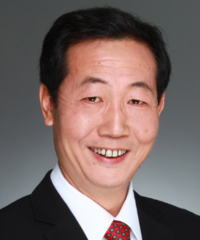
Shiqian Wu
Vice Director and Chief Scientist, Institute of Advanced Displays and Imaging, Henan Academy of Sciences, China
Research field: Computer Vision, Image Processing; Pattern Recognition, Intelligent Robotics and Artificial Intelligence.
Prof. Shiqian Wu received the B.Eng. and M.Eng. degrees from the Huazhong University of Science and Technology (HUST), Wuhan, China, in 1985 and 1988, respectively, and the Ph.D. degree from Nanyang Technological University, Singapore in 2001. He is currently a full Professor with School of Information Science and Engineering; Director, Hubei Province Key Laboratory of Intelligent Information Processing and Real-Time Industrial Systems, Deputy Director, Institute of Robotics & Intelligent Systems (IRIS), Wuhan University of Science and Technology, Wuhan. From 2000 to 2014, he was a Research Fellow / Research Scientist with the Agency for Science, Technology and Research (A-STAR), Singapore. He has co-authored two books and more than 260 scientific publications (book chapters, journal/conference papers). He was listed as Most Cited Chinese Researchers in 2014~2021 by Elsevier. Prof. Wu is a senior member of the International Electrical and Electronics Association (IEEE), and has served as an editorial board member of ScientificWorld Journal, a member of the IEEE Technical Committee on Multimedia Communications, and has served as conference chair and technical committee chair of many international conferences. He has been a member of the editorial board of ScientificWorld Journal, a member of IEEE Technical Committee on Multimedia Communications, and has been the chairman of many international conferences and technical committees. He is a reviewer for many international journals, such as IEEE Trans. His research interests include computer vision, image processing, pattern recognition, intelligent robotics and artificial intelligence.
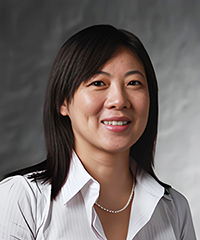
Rena Huang
Associate Professor, Rensselaer Polytechnic Institute, USA.
Research field: Si Photonic Devices and Integration; On-chip Slow-light Waveguides; Metastructure Arrays and High Contrast Gratings for Applications in Phased Array Antennas; Optical Neuromorphic Computing; Subwavelength Imaging.
Zhaoran (Rena) Huang received her B.S. in Physical Optics from Beijing Institute of Technology, and both her M.S. and Ph.D. in the field of Integrated Optoelectronics and Photonics from the Department of Electrical and Computer Engineering at Georgia Institute of Technology. She later joined the NSF ERC of Microsystem Packaging Research Center (PRC) at Georgia Institute of Technology as a postdoctoral fellow where she led the effort in design and integration of end-to-end optical interconnects on SOP substrate. Dr. Huang joined the faculty of the Electrical, Computer, and Systems Engineering (ECSE) Department of Rensselaer Polytechnic Institute as a tenure track professor in 2005, and was awarded tenure in 2012. Her research spans a wide range of topics, including solid state optoelectronic devices such as photodetectors and modulators, integrated lightwave circuits on Si platform for biological and chemical sensing, foundry based large array optical system integration, and optical interposer and optical packaging. Her current research activities focus on Si photonic devices and integration, on-chip slow-light waveguides, metastructure arrays, and high contrast gratings for applications in phased array antennas, optical
neuromorphic computing, subwavelength imaging etc.
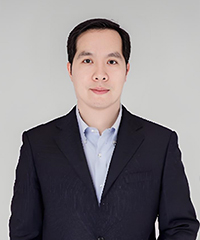
Enqing Chen
Professor, Zhengzhou University, China.
Research field: Signal and Information Processing; Machine Learning; Computer Vision; Internet of Things; Embedded Systems.
Dr. Enqing Chen is a Professor at the School of Electrical Engineering, Zhengzhou University; Executive Committee Member of Technical Committee on Machine Vision (TCMV), China Society of Image and Graphics (CSIG) and a Young Backbone Teacher of Henan Province. He received his PhD from Beijing Institute of Technology in 2007. In 2015, he was a Senior Visiting Scholar at Ryerson University, Canada, funded by the China Scholarship Council. His main research areas include intelligent signal and information processing, big data analysis, computer vision, wireless communication systems, and embedded systems. He has led and completed numerous national and provincial-level projects, including the National Natural Science Foundation of China, the Research Fund for the Doctoral Program of Higher Education (RFDP), Henan Provincial Science and Technology Research Project, and Henan Provincial Industry-University-Research Projects, as well as several industry-funded research projects. He holds 5 national invention patents, 6 utility model patents, and 8 computer software copyrights. He has published over 60 high-level papers, including over 40 SCI-indexed papers. He has received one first prize for scientific and technological achievements from the Henan Provincial Department of Education, one second prize for teaching achievements from Henan Province, and several Henan Provincial Outstanding Natural Science Paper Awards. In 2017, he received a Top 6 Papers at the IEEE ISM.
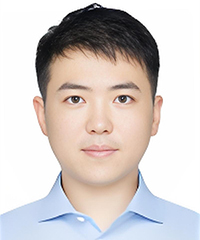
Lei Chen
Associate Professor, Shandong University, China.
Research field: Image Processing; Computer Vision; Visual Quality Assessment; Image Enhancement; Abnormal Behavior Analysis; Digital Watermarking; Machine Learning; Artificial Intelligence.
Dr. Lei Chen is an Associate Professor and Master's Supervisor at the School of Information Science and Engineering, Shandong University. He earned his Ph.D. from the School of Electrical Engineering and Computer Science at the University of Ottawa, Canada, following his Bachelor's and Master's degrees from Shandong University. He is a member of the Shandong University Young Scholars Future Plan and the Chinese Association of Automation (CAA). His primary research interests include image processing, computer vision, visual quality assessment, image enhancement, abnormal behavior analysis, digital watermarking, machine learning, and artificial intelligence. He currently leads several national and provincial-level projects, including grants from the National Natural Science Foundation of China (NSFC), a sub-project of the National Key Research and Development Program of China, the Natural Science Foundation of Shandong Province, and the China Postdoctoral Science Foundation. He has also participated in projects funded by the Natural Sciences and Engineering Research Council of Canada (NSERC). To date, he has published numerous papers in leading international journals and conferences, holds several national invention patents, and has served as a reviewer for internationally renowned journals and as an area chair for international conferences. He has also been invited to deliver keynote speeches and invited talks at international conferences on multiple occasions.
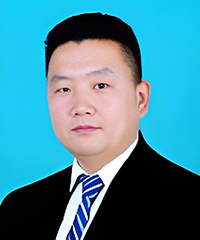
Yunfeng Wang
Associate Professor, Nanyang Institute of Technology, China.
Research field: Controllable Preparation and Device Applications of Luminescent Materials.
Dr. Yunfeng Wang is an Associate Professor and Master's Supervisor, currently serving as the Vice Dean of the School of Information Engineering at Nanyang Institute of Technology. He is recognized as an Academic Technology Leader in Nanyang City, a Director of the Henan Optical Society, and has been selected as an expert for the talent pool of the Henan Association for Science and Technology. He earned his Ph.D. from the State Key Laboratory of Integrated Optoelectronics at Jilin University and conducted postdoctoral research at Sun Yat-sen University from 2018 to 2022. His awards and honors include first place in the university's teaching skills competition, first place in the exemplary teaching plan competition, and being named a University-Level Outstanding Teacher, Advanced Worker, Outstanding Academic Mentor, and Outstanding Undergraduate Thesis Supervisor. In terms of academic projects, he has led the development of one university-level "First-Class Major" and one "First-Class Course". He has also overseen one provincial-level teaching reform project and two at the university level. Furthermore, he has directed the establishment of one university-level scientific research innovation team. His research leadership includes projects such as a Young Scientists Fund from the National Natural Science Foundation of China and six provincial/ministerial-level scientific research projects, including the Henan Provincial Key R&D Program and the Henan Provincial Joint Fund. To date, he has published over 20 papers, been granted three invention patents, and authored one academic monograph.
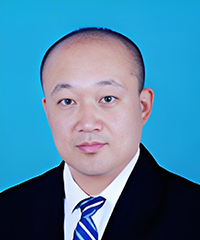
Xinhua Lu
Associate Professor, Nanyang Institute of Technology, China.
Research field: Mobile Communications; Signal Processing; Wireless Positioning; Machine Learning Theory; Industrial IoT Applications.
Dr. Lu is currently an associate professor at Nanyang Institute of Technology and serves as the Director of the Academy for Electronic Information Discipline Studies. His main research areas include mobile communications, signal processing, wireless positioning, machine learning theory, and industrial IoT applications. In terms of research projects, he has led and participated in the completion of a sub-project of a National 863 Major Program, three National Natural Science Foundation of China (NSFC) projects, and multiple provincial-level research initiatives. He has published over 10 academic papers, many of which have been indexed in SCI or EI databases. Additionally, he actively engages in industry collaboration, serving as a research consultant for several major enterprises. He has co-developed technologies such as spread-spectrum communication radio equipment, wireless positioning systems, and vibration detection systems, bringing significant economic benefits to these companies.
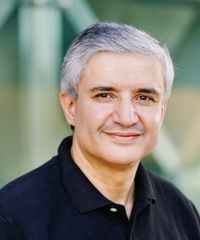
Mohamed-Slim Alouini
Al-Khawarzmi Distinguished Professor, IEEE Fellow, King Abdullah University of Science & Technology, Saudi Arabia.
Research field: Design and Performance Analysis Of Diversity Combining Techniques; Mimo Techniques; Multi-Hop/Cooperative Communications Systems; Optical Wireless Communication Systems; Cognitive Radio Systems; Green Communication Systems and Networks.
Mohamed-Slim Alouini was born in Tunis, Tunisia. He received the Ph.D. degree in Electrical Engineering from the California Institute of Technology (Caltech) in 1998. He served as a faculty member at the University of Minnesota then in the Texas A&M University at Qatar before joining in 2009 the King Abdullah University of Science and Technology (KAUST) where he is now the Al-Khawarizmi Distinguished Professor of Electrical and Computer Engineering. Prof. Alouini is a Fellow of the IEEE and OPTICA (Formerly the Optical Society of America (OSA)). He is currently particularly interested in addressing the technical challenges associated with the uneven distribution, access to, and use ofinformation and communication technologies in rural, low-income, disaster, and/or hard-to-reach areas.
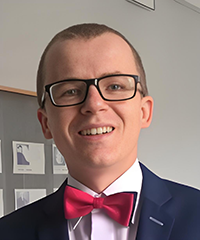
Artur Czerwinski
Assistant Professor, Nicolaus Copernicus University in Torun, Poland.
Research field: Quantum Communications; Quantum Optics; Quantum State Tomography; Quantum Information Theory; Free Space Optics.
Dr. Artur Czerwinski received his Ph.D. degree in Physics from Nicolaus Copernicus University in Torun, Poland, in 2018, specializing in Mathematical and Quantum Physics under the supervision of Prof. Andrzej Jamiołkowski. His doctoral research focused on the characterization of quantum resources, with his dissertation titled "Applications of Selected Algebraic Methods to Quantum Tomography of Open Systems." During his Ph.D. studies, he also conducted research at the Center for Theoretical Physics of the Polish Academy of Sciences. From 2019 to 2022, he worked at the Institute of Physics, Nicolaus Copernicus University in Torun, contributing to the project "Applications of Single-Photon Technologies," led by Prof. Piotr Kolenderski. His research involved theoretical studies on quantum state tomography, open quantum systems, and time-bin encoding, as well as contributions to the technology project "Satellite Controller of Polarization-Entangled Photon Pairs," where he evaluated the quality of a source of entangled photon pairs. He subsequently held a postdoctoral position at the Centre of New Technologies, University of Warsaw (2022–2023), working on a project in quantum optical technologies. His responsibilities included a comprehensive analysis of the efficiency of a satellite-based optical key distribution protocol under the influence of atmospheric turbulence. Currently, Dr. Czerwinski is an Assistant Professor at Nicolaus Copernicus University in Torun, working in the Single Photon Applications Laboratory. He is actively involved in projects funded by the European Space Agency, including "Space-Based Links for the Quantum Internet" and "CCSDS Standardized Ranging for Optical Communication Terminals." Dr. Czerwinski has authored over 35 impactful publications and has received accolades such as the Outstanding Reviewer Award from IOP Publishing (2023) and the Minister of Education and Science Scholarship (2022). In addition to his expertise in Quantum Physics, he holds a Master's degree in Economic Sciences and has a strong interest in economic theories that utilize advanced mathematical methods and modeling.
Latest News
Nov 24, 2025
Nov 18, 2025
Jun 24, 2025
TOCS 2025 will select excellent papers and recommend to special issue of SCI/SSCI journals! →
Jan 24, 2025
Dec 31, 2024
Supported By
